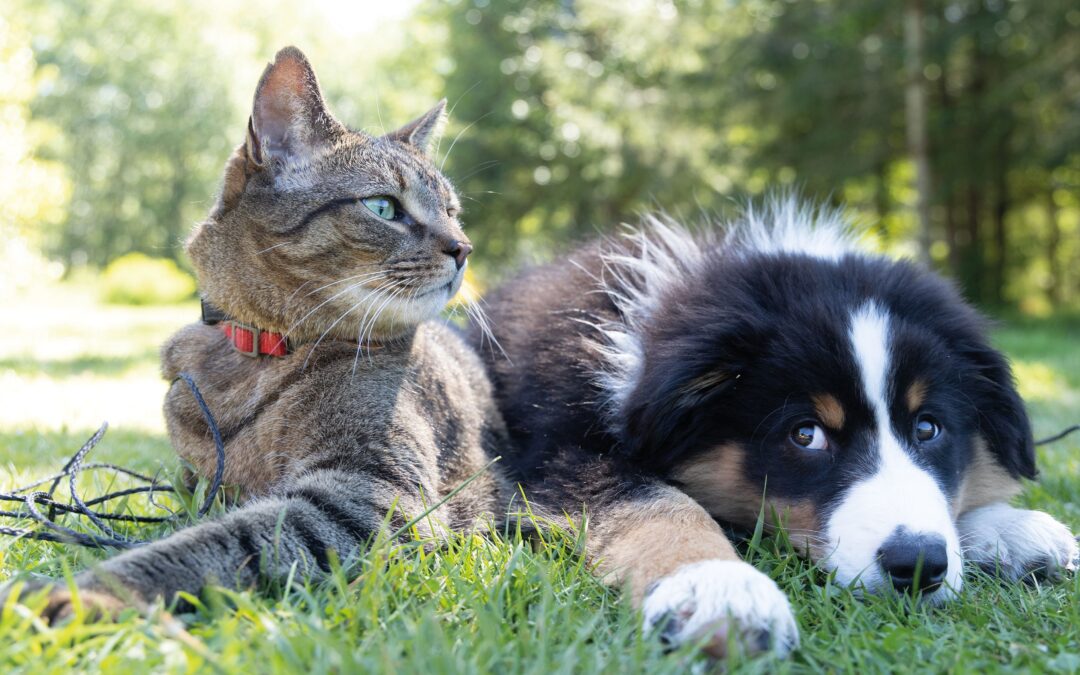One interesting side effect of the COVID 19 pandemic has been the opportunity to take a closer look at the human animal bond. As the recent explosion in dog and cat ownership has shown, humans draw heavily on their pets for emotional and physical support. Many humans express love and devotion for their pets. However, what about the animals? Do they feel the same about us? In general the science advises that to conflate feelings and emotions is unwise. There are animal behaviours that connote emotions, but we cannot infer we therefore know what animals feel.
All that said and setting to one side complex scientific and philosophical questions about the meaning and nature of love, there are indicators that dogs and even cats may feel something akin to affection for their humans. Here is a quick guide to some of the evidence:
- In 2014 a small study showed that during MRI scans the reward centres of the dog brain light up when they detect their owner’s scent. It seems the owner’s unique smell may be the canine equivalent of a loved one’s face or voice. Next time your pup steals a shoe or inhales deeply into your crotch they are not necessarily being naughty, they just love you and your smell!
- In 2015 a Japanese study found that when you and your dog gaze into each other’s eyes you may both experience a spike in oxytocin- the ‘love hormone’. It’s strong stuff and what mothers feel for their new-borns, and newly enamoured couples for each other.
- A 2016 study suggests dogs are uniquely attuned to human facial expressions and vocal tones and may ‘recognise’ human emotions. In tests dogs were able to match facial expressions to the appropriate tone of voice. This ability partly explains why some owners feel their dogs are empathetic.
- More recently, ethologist Clive Wynne, an arch critic of anthropomorphism, now says dogs may indeed feel something akin to love. In his Book ‘Dog is Love: Why and How your Dog Loves You’ he refers to research where dogs will often choose the presence of their human over food.
- Wynne also discusses recent research that may explain much more about how dogs evolved and became domesticated. Humans with the rare genetic condition, Williams-Beuren syndrome, share a number of physical and mental characteristics, including unusually high extraversion and sociability scores. Research on the canine genome has revealed that dogs share similar gene variants, partly explaining why most dogs are so dependent on human contact and affection.
Unsurprisingly, it has proven much more difficult to get pet cats into scanners or laboratory test scenarios, so the evidence here is thinner. Also, Felines are not so well domesticated that they depend on us utterly. But can cats love us or only what we can do for them? The jury is out, but it is thought that some cats are more social than others and many show signs of something akin to affection.
- A cat that flags his tail and moves brightly towards you is probably pleased to see you.
- If he rubs around you and butts you with his head, he is scenting you, making you smell familiar- the more you smell like him the stronger the bond.
- Slow eye closing is usually a sign of trust, if not more. Try it out and see if your cat responds.
- Cats also show trust and affiliation, if not affection, by leaning against you, grooming you with their tongue, even offering their tummy for a rub.
- Purring, once viewed as a signal of feline pleasure, is now thought to be more about communicating a desire for something or to prolong an event. Paradoxically, cats also purr when they are in pain.
Leonie St Clair l www.londondogstraining.co.uk

